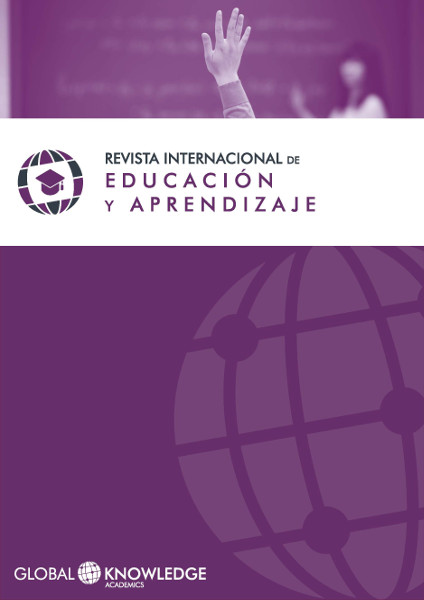Perfil de los formadores de docentes en educación especial: impacto en la mejora del aprendizaje de los alumnos
DOI:
https://doi.org/10.37467/gka-revedu.v4.209Palabras clave:
competencia, académico, desempeño, calidadResumen
Puede resultar extraño tener que aceptar que, pese a las diversas investigaciones realizadas, actualmente no existe un consenso amplio sobre los rasgos y competencias que debe tener el perfil académico del formador de docentes en educación especial, la tarea conlleva brindar una educación de calidad para lo que se requiere la actualización y preparación profesional constante, se precisa desarrollar en el formador habilidades básicas para la docencia e impactar en su metodología de enseñanza. En este trabajo se busca dar los primeros pasos para definir el perfil del formador de docentes en educación especial dentro del ámbito de las competencias, el objetivo general es analizar la relación que existe entre dicho perfil y los resultados de aprendizaje que han alcanzado los alumnos, ya que se dice que la educación es una realidad doblemente humana porque su sujeto de estudio es el hombre y que además únicamente él puede ejercerla y llevarla a cabo con otros similares.
Descargas
Estadísticas globales ℹ️
|
768
Visualizaciones
|
5553
Descargas
|
|
6321
Total
|
|
Citas
Díaz-Barriga, F. (2004). Didáctica. Aportes para una polémica. Buenos Aires: Aique.
Grisales-Franco, L., González-Agudelo, E. (2009). El saber sabio y el saber enseñado: un problema para la didáctica universitaria. Educación y Educadores, 77-86.
Jarauta, B., Medina, J. L. (2012). Fuentes y procesos de aprendizaje docente en el contexto universitario. Revista Española de Pedagogía, 337-353.
Medina-Rodríguez, F, Andrade-Padilla, M. A., Rivera-Ibarra, D. B. (2009). Estimación de la postura ante la educación de médicos con y sin formación docente. Revista Medica Instituto Mexicano Seguro Social, 677-682.
Medley, D. (2009). The effectiveness of teachers. En P. Peterson y H. Walberg (Eds.), Research on teaching: Concepts, findings and implications (183-198). Berkeley: McCutchan.
Navío, A. (2006). Las competencias profesionales del formador: Una visión desde la formación continua. España: Octaedro.
Olmos-Miguelánez, S., Rodríguez-Conde, M.J. (2011). El profesorado universitario ante la eevaluación del aprendizaje. Revista Estudios sobre educación, 181-202.
Oviedo G. (2009). Competencias docentes para enfrentar la sociedad del conocimiento. Apertura. Revista De Innovación Educativa, 76-83.
Pérez, V. M. V., Valenzuela, C. N. F., Díaz, M. A., González Pienda, J. A., Núñez. P. J. C. (2011). Disposición y enfoques de apredizaje en estudiantes universitarios de primer año. Universitias Psychologica, 441-449. DOI: https://doi.org/10.11144/Javeriana.upsy10-2.deae
Reyes, S. O. (2012). Percepción de la calidad del servicio educativo universitario. Enfoque epistemológico transparadigmático. Mexicali, México: Académica Española.
Secretaría de Educación Pública. (2009). Sistema Nacional de Formación Continua y Superación Profesional de Maestros en Servicio. Dirección General de Formación Continua de Maestros en Servicio de la Subsecretaría de Educación Básica. México.
Sereno, D. P., Maisterrena, V.D. (2006). Propuesta de enseñanza y aprendizaje en el ámbito universitario basada en una perspectriva constructivista para el tema "vaca caída". Ciencia veterinaria.
Tejedor, F., García-Varcárcel, A. (2010). Evaluación del desempeño docente. Revista Española De Pedagogía, 439-459.
Descargas
Publicado
Cómo citar
Número
Sección
Licencia
Los autores/as que publiquen en esta revista aceptan las siguientes condiciones:
- Los autores/as conservan los derechos de autor.
- Los autores/as ceden a la revista el derecho de la primera publicación. La revista también posee los derechos de edición.
- Todos los contenidos publicados se regulan mediante una Licencia Atribución/Reconocimiento-SinDerivados 4.0 Internacional. Acceda a la versión informativa y texto legal de la licencia. En virtud de ello, se permite a terceros utilizar lo publicado siempre que mencionen la autoría del trabajo y a la primera publicación en esta revista. Si transforma el material, no podrá distribuir el trabajo modificado.
- Los autores/as pueden realizar otros acuerdos contractuales independientes y adicionales para la distribución no exclusiva de la versión del artículo publicado en esta revista (p. ej., incluirlo en un repositorio institucional o publicarlo en un libro) siempre que indiquen claramente que el trabajo se publicó por primera vez en esta revista.
- Se permite y recomienda a los autores/as a publicar su trabajo en Internet (por ejemplo en páginas institucionales o personales), una vez publicado en la revista y citando a la misma ya que puede conducir a intercambios productivos y a una mayor y más rápida difusión del trabajo publicado (vea The Effect of Open Access).













